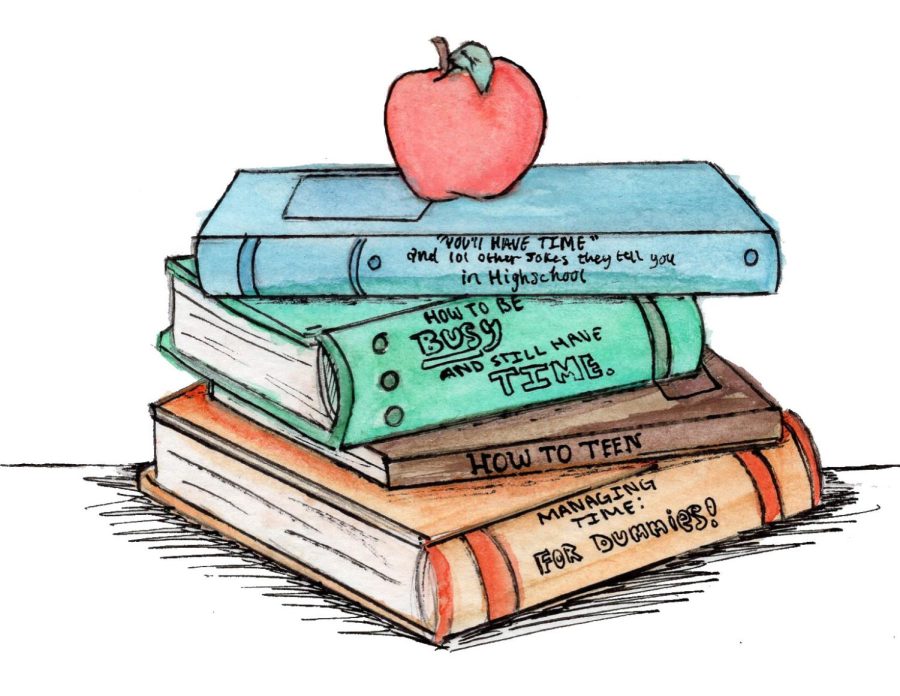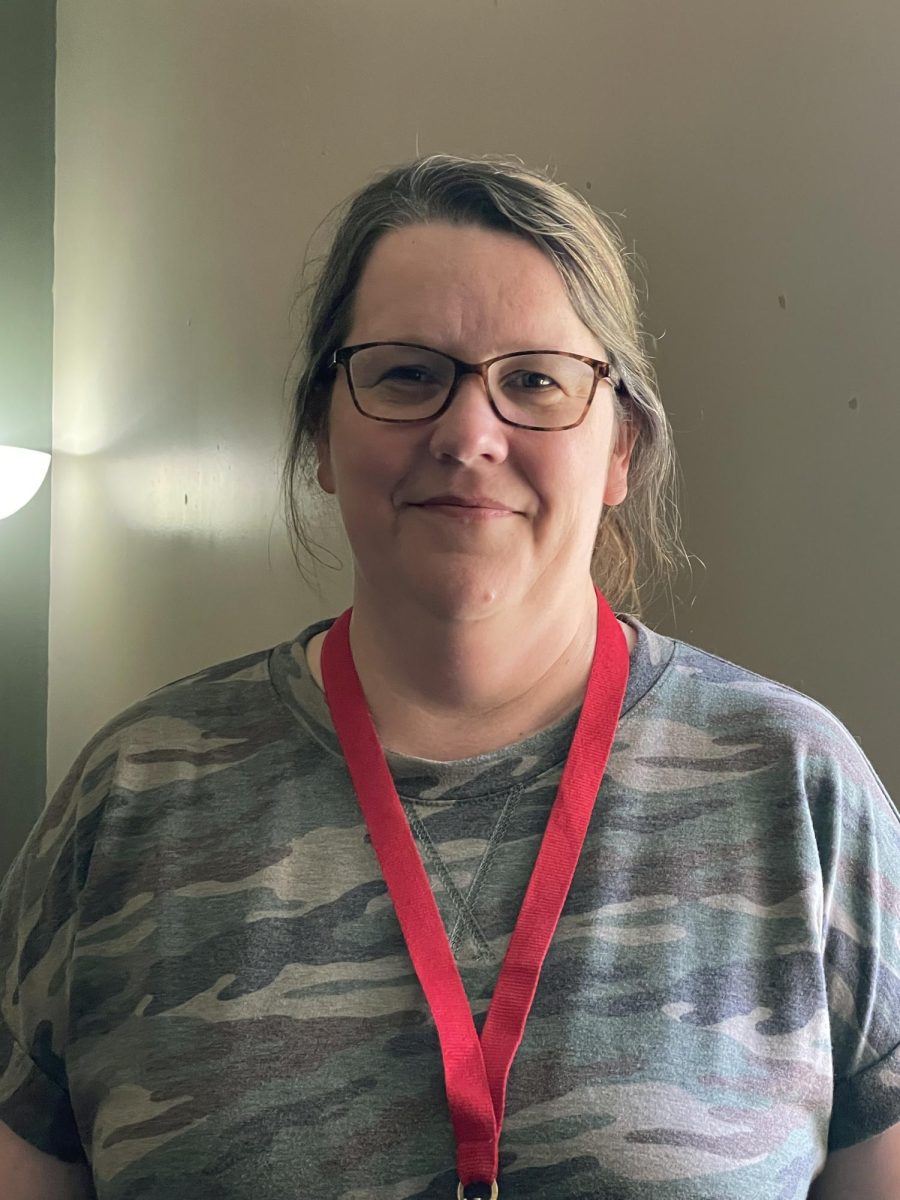Anxiety Awareness and Time Management
Learning about anxiety and how to cope can be beneficial for those with and without it.
October 13, 2022
With intense schedules, fast paced mindsets and other commitments, numerous factors can contribute to the development of anxiety. Anxiety is different than just being nervous. An anxiety disorder is a diagnosable mental health condition that may cause feelings of angst, worry and fear. Senior Lydia Cheek was diagnosed with an anxiety disorder in February of her sophomore year.
“I would describe it as a literal wave of emotions [and] everything coming at you at once…” Cheek said. “Like you could be … fine one second and [then] it’s like everything is going wrong all at once. I feel like overthinking is overused a lot, but I really do have like 20 thoughts going on in my head with one conversation.”
Nixa High School counselor Nancy Doubrava said anxiety is unique in each individual.
“Some people may have anxiety and it may be all internal and there’s no physical symptoms at all.” Doubrava said. “But then there are some people that have actual physical [symptoms.] They might be having a panic attack, maybe they’re crying or they’re shaking a little bit. It really [depends] on the person and how anxiety manifests in your body and in your brain.”
No matter the type of anxiety one may have, Doubrava said anxiety develops in many different ways.
“… It can be something has happened in your life, or nothing happened and your brain just starts reacting in a different way,” Doubrava said. “Sometimes there’s not always an answer and sometimes we don’t know.”
However anxiety has developed, in order to get a proper diagnosis, a psychiatrist or psychologist would be the reliable option. Doubrava said a diagnosis is achieved by using The Diagnostic And Statistical Manual Of Mental Disorders.
“Whenever you’re with a counselor or you’re with a doctor, you have to meet certain criteria in order to be diagnosed with something,” Doubrava said.
Cheek said she looked into getting a diagnosis after constantly feeling upset.
“There [was] nothing in my life that was going bad at that time that could have made me want to cry every night and make me feel super overwhelmed. I was fine during the day but at night, something happened and made me gloomy.”
Regardless of whether one has been diagnosed with anxiety, it is a manageable disorder.
Doubrava said there are a variety of treatment options.
“To really work through your anxiety, you need to have an individual counselor to work with,” Doubrava said. “But there’s also things you can do on your own. … There are so many coping skills out there and that’s what we talk about a lot as school counselors.”
Cheek advises doing some research about one’s diagnosis.
“I think learning more about it and understanding yourself is really good and how you find yourself and understand what you can do,” Cheek said.
Just as anxiety presents itself different in each individual, treatment is also something that cannot be generalized, and can be different for everyone.
“Sometimes you just need to learn those coping skills and you can manage it on your own,” Doubrava said. “Not every person needs medication, not every person needs counseling so it’s really individualized to find what’s best.”
A helpful alternative to medicine or counseling for those struggling with anxiety, may be having a support group.
Cheek said having a support group has helped her significantly.
“Certain people like my friends, band, my section — they’ve known me through … my whole journey,” Cheek said.
An important distinction to make is differentiating between an anxiety disorder versus feeling anxious at times.
“Many people may have symptoms of anxiety but not actually be [diagnosed] with an anxiety disorder,” Doubrava said. “A lot of people that maybe don’t have anxiety don’t understand it.”
While one may experience common symptoms of an anxiety disorder, not all who experience such symptoms have an actual disorder. To determine whether one has an anxiety disorder, being evaluated by a psychiatrist or psychologist is necessary.
Depending on coping skills, environment and many other factors, the way anxiety affects a person may not always be obvious to the public eye.
Doubrava said the most important thing to note is that anxiety is nothing to be embarrassed about.
“Be open and honest when you’re … struggling,” Doubrava said. “The more people you ask for help, the more people you have in your corner to help you…”
Time management is often a struggle for many and can affect a student’s mood. Junior Sailor Powley has an intensive schedule — from AP classes to multiple sports and club involvements. Powley said she has found herself struggling with time management, but has found ways to combat it.
“Usually what I will do is in order to create more time for myself — because if I am on a sports team I don’t always have after school — I will do homework during lunch,” Powley said. “… I’ll start working on things that are due a couple of weeks in advance because I know that I’m always going to be busy.”
Senior Lydia Cheek said she also has found herself struggling with time management.
“I’ve been getting better at it, but freshman, sophomore and junior year I was in easier classes and didn’t have much homework so it was kind of easy for me to slack off and not do much,” Cheek said. “But junior year [I had] work, band, … some actual assignments that I had to do and then senior year [I have] no time to actually do assignments…”
For those struggling with meeting deadlines for assignments, Powley offers advice.
“I’ve found that for me, if I have a concrete list of things that I need to know or need to do, that really helps,” Powley said. “So I will write on a sticky note all my assignments that I need to do that night and anything extra that I can get done and it really gives me a sense of satisfaction in checking things off.”
Ultimately, not everyone’s response to the pressure of an intensive schedule will be the same. Powley stresses the importance of finding out what works for each individual.
“For example, some [people] can listen to music and that calms them down,” Powley said. “Or like me, some [people] can just keep working … and that helps them process. So whatever strategies or coping mechanisms work for you, you need to play to your strengths.”







